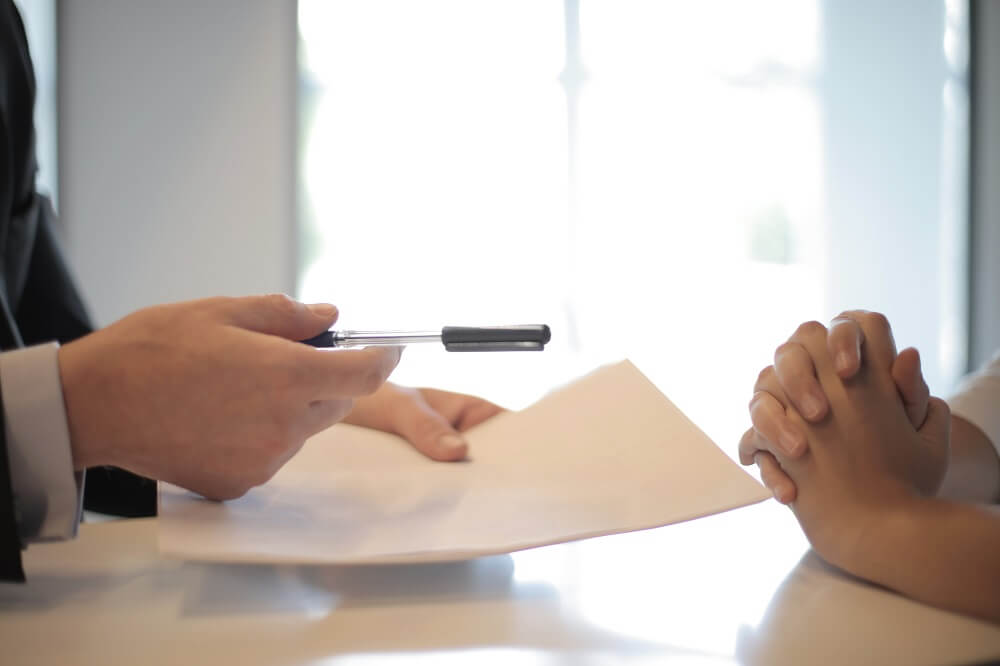The Insurance Company Wants a Statement. What Should I Say?

Have you been in a car accident? Does the insurance company want a statement?
Be careful giving them what they’re asking for without first talking to an experienced car accident lawyer. Whatever you tell the insurance company could be used against you, which may ultimately reduce the compensation you are able to recover from the accident. So even if you feel pressured to give a statement, don’t. First, talk to a qualified accident lawyer so you don’t miss out on the compensation you deserve for your injuries and damages.
A Columbus car accident lawyer at The Jones Firm can help you give a recorded statement to the insurance company, including giving you an overview of how to handle specific questions that may come up about your accident. However, there are six key rules to keep in mind as you give your statement to the insurance company for your car accident claim.
After a Car Accident, Be Careful What You Tell the Insurance Adjuster
#1 – Keep it simple
When making a statement about the accident, keep it as simple as possible. Don’t give extra details to the claims adjuster. Insurance companies do not need excessive details about the accident, and those extra details could end up creating confusion about the cause of the accident. Your lawyer can help you lay out the specific details of your accident and what you should share with the insurance adjusters, including how to best frame the events that led to the auto accident.
#2 – Answer only the questions asked by the insurance agent
As you give your statement, the insurance agent will likely ask several questions designed to give them more detail about the accident. While you should answer those questions to the best of your ability, you should not provide further unnecessary details. Instead, answer just the questions asked. Do not go into extra detail or let yourself go on about unrelated subjects, which could confuse your statement. Furthermore, do not volunteer additional information. Keep in mind that the insurance agent may use long silences to try to convince you to fill in more details, and do not fall prey to this common tactic.
#3 – Do not discuss your recovery or your current physical state
During your recorded statement, you want to carefully avoid any discussion of your physical state after the car accident. Refer the insurance adjuster to your medical records rather than discussing your recovery yourself. Keep in mind that any statements about your physical recovery could impact the compensation you can recover for your injuries in the insurance claim. While you may, of course, understand your current physical condition, your doctors are in a better position than you are to comment about your recovery, and your medical records may provide more information than you can. You may also inadvertently give the wrong idea about your ongoing recovery.
#4 – Avoid small talk when speaking with the insurance agent
The insurance agent may try to draw you into small talk while preparing your statement. However, even casual small talk can prove detrimental to your eventual ability to recover the compensation you deserve for your injuries. For example, the insurance agent could use a conversation about your weekend plans to establish that your injuries are less severe than you claim and that you can engage in more activities than you think. If you discuss your recovery and note that you are “fine” or “recovering well,” the insurance agent might use that as a suggestion that they may need to look more deeply into your injuries. Avoid small talk to help avoid those traps.
#5 – Ask for clarification if you do not understand a question
Any time the insurance company asks a question you don’t understand during the recorded statement, make sure you clarify it and understand the question fully before you give an answer. Avoid giving an ambiguous answer. Instead, ask the insurance agent to rephrase if needed. “I don’t know” is a reasonable answer to a question that you do not understand or are not qualified to answer.
#6 – Avoid any statement that admits fault for the accident
Many people, in an effort to be polite, will inadvertently accept part of the responsibility for the accident. You might, for example, brush off the other driver’s responsibility in an accident by noticing that you also did not see them coming or that you were distracted at the moment of the accident. Any statement that accepts liability, even partial liability, for the accident could change the balance of liability in the accident. If the insurance company finds you partially liable for the accident, you may end up with only a fraction of the compensation you could otherwise recover for your injuries.
Talk to an Accident Lawyer Before Making a Statement
After a car accident, things may move very quickly. You may find yourself dealing with your own insurance company or the other driver’s insurance company before you even have a chance to fully understand the extent of your injuries and their long-term impact on you. There are many things you should do after a car accident, mainly contacting an accident lawyer.
A car accident lawyer can help you navigate your injury claim, from clearly laying out the compensation you can reasonably expect after an accident to determining how to give your recorded statements to the insurance company. A personal injury attorney will stand on your side throughout the process, which may provide you with considerable support and insight during the insurance claims process.
If you need help recovering damages from your accident injury, contact The Jones Firm today.



